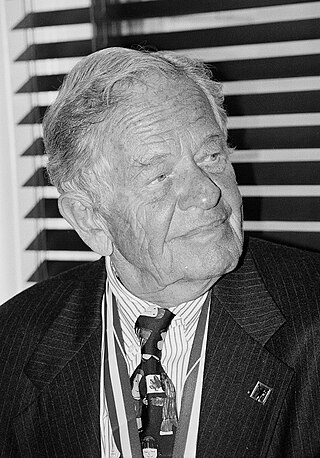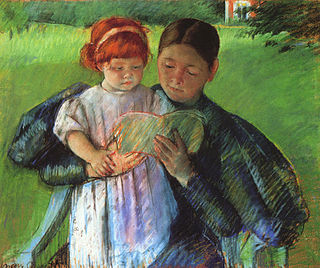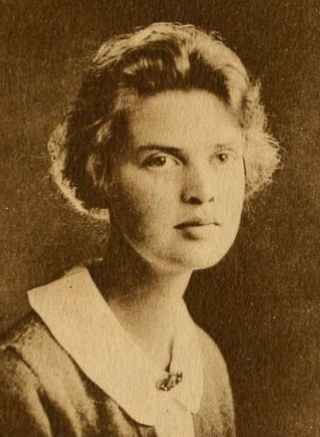
Child care, otherwise known as day care, is the care and supervision of a child or multiple children at a time, whose ages range from two weeks of age to 18 years. Although most parents spend a significant amount of time caring for their child(ren), child care typically refers to the care provided by caregivers that are not the child's parents. Child care is a broad topic that covers a wide spectrum of professionals, institutions, contexts, activities, and social and cultural conventions. Early child care is an equally important and often overlooked component of child's developments.

Thomas Berry Brazelton was an American pediatrician, author, and the developer of the Neonatal Behavioral Assessment Scale (NBAS). Brazelton hosted the cable television program What Every Baby Knows, and wrote a syndicated newspaper column. He wrote more than two hundred scholarly papers and twenty-four books.
Stanley Greenspan was a clinical professor of Psychiatry, Behavioral Science, and Pediatrics at George Washington University Medical School and a practicing child psychiatrist. He was best known for developing the influential floortime approach for treating children with autistic spectrum disorders and developmental disabilities.

Babysitting is temporarily caring for a child. Babysitting can be a paid job for all ages; however, it is best known as a temporary activity for early teenagers who are not yet eligible for employment in the general economy. It provides autonomy from parental control and dispensable income, as well as an introduction to the techniques of childcare. It emerged as a social role for teenagers in the 1920s, and became especially important in suburban America in the 1950s and 1960s, when small children were abundant. It stimulated an outpouring of folk culture in the form of urban legends, pulp novels, and horror films.
Cognitive development is a field of study in neuroscience and psychology focusing on a child's development in terms of information processing, conceptual resources, perceptual skill, language learning, and other aspects of the developed adult brain and cognitive psychology. Qualitative differences between how a child processes their waking experience and how an adult processes their waking experience are acknowledged. Cognitive development is defined as the emergence of the ability to consciously cognize, understand, and articulate their understanding in adult terms. Cognitive development is how a person perceives, thinks, and gains understanding of their world through the relations of genetic and learning factors. There are four stages to cognitive information development. They are, reasoning, intelligence, language, and memory. These stages start when the baby is about 18 months old, they play with toys, listen to their parents speak, they watch tv, anything that catches their attention helps build their cognitive development.
Arnold Lucius Gesell was an American psychologist, pediatrician and professor at Yale University known for his research and contributions to the fields of child hygiene and child development.

Pre-kindergarten is a voluntary classroom-based preschool program for children below the age of five in the United States, Canada, Turkey and Greece. It may be delivered through a preschool or within a reception year in elementary school. Pre-kindergartens play an important role in early childhood education. They have existed in the US since 1922, normally run by private organizations. The U.S. Head Start program, the country's first federally funded pre-kindergarten program, was founded in 1967. This attempts to prepare children to succeed in school.
The Yale Child Study Center is a department at the Yale University School of Medicine. The center conducts research and provides clinical services and medical training related to children and families. Topics of investigation include autism and related disorders, Tourette syndrome, other pediatric mental health concerns, parenting, and neurobiology.
Penelope Jane Leach is a British psychologist who researches and writes extensively on parenting issues from a child development perspective.
René Árpád Spitz was an Austrian-American psychoanalyst. He is best known for his analysis of hospitalized infants in which he found links between marasmus and death with unmothered infants. Spitz also made significant contributions to the school of ego psychology.
Developmentally appropriate practice is a perspective within early childhood education whereby a teacher or child caregiver nurtures a child's social/emotional, physical, and cognitive development. It is also described as a philosophy in child education that is based on child development knowledge where professionals base their instruction and care on research, standards, and recognized theory.
Zdeněk Matějček was a Czech child psychologist, researcher, and childcare reformer, who pioneered the study of the institutional conditions of raising children in an environment of psychological deprivation. He was a significant reformer of child care, emphasising the irreplaceable role of the family. He was known for studies of the effects on children of being held in prison camps during World War II, was a co-founder and the first chairman of an association that involved animals, such as dogs and horses, in child therapy, and was the principal organizer of a meeting of the International Association for Research in Learning Disabilities, held in Prague on October 2–5, 1989. He placed 93rd on Největší Čech.

The Kennedy Krieger Institute is a nonprofit, 501(c)(3) tax-exempt, Johns Hopkins affiliate located in Baltimore, Maryland, that provides in-patient and out-patient medical care, community services, and school-based programs for children and adolescents with learning disabilities, as well as disorders of the brain, spinal cord, and musculoskeletal system. The Institute provides services for children with developmental concerns mild to severe and is involved in research of various disorders, including new interventions and earlier diagnosis.
James P. Comer is currently the Maurice Falk Professor of Child Psychiatry at the Yale Child Study Center and has been since 1976. He is also an associate dean at the Yale School of Medicine. As one of the world's leading child psychiatrists, he is best known for his efforts to improve the scholastic performance of children from lower-income and minority backgrounds which led to the founding of the Comer School Development Program in 1968. His program has been used in more than 600 schools in eighty-two school districts. He is the author of ten books, including the autobiographical Maggie’s American Dream: The Life and Times of a Black Family, 1988; Leave No Child Behind: Preparing Today's Youth for Tomorrow's World, 2004; and his most recent book, What I Learned in School: Reflections on Race, Child Development, and School Reform, 2009. He has also written more than 150 articles for Parents (magazine) and more than 300 articles on children's health and development and race relations. Dr. Comer has also served as a consultant to the Children's Television Workshop which produces Sesame Street and The Electric Company. He is a co-founder and past president of the Black Psychiatrists of America and has served on the board of several universities, foundations, and corporations. He has also lectured and consulted widely not only across the United States at different universities, medical schools, and scientific associations, but also around the world in places such as London, Paris, Tokyo, Dakar, Senegal and Sydney, Australia. For his work and scholarship, Dr. Comer has been awarded 47 honorary degrees and has been recognized by numerous organizations.
The Maturational Theory of child development was introduced in 1925 by Dr. Arnold Gesell, an American educator, pediatrician and clinical psychologist whose studies focused on "the course, the pattern and the rate of maturational growth in normal and exceptional children"(Gesell 1928). Gesell carried out many observational studies during more than 50 years working at the Yale Clinic of Child Development, where he is credited as a founder. Gesell and his colleagues documented a set of behavioral norms that illustrate sequential & predictable patterns of growth and development. Gesell asserted that all children go through the same stages of development in the same sequence, although each child may move through these stages at their own rate Gesell's Maturational Theory has influenced child-rearing and primary education methods since it was introduced.
The Gesell Developmental Schedules are a set of developmental metrics which outline the ages & stages of development in young children developed by Dr. Arnold Gesell and colleagues. The original scale is generally considered not to satisfy the standards of rigor currently accepted in the field of psychometrics and is no longer used as an evaluative rubric in the clinical context. The most current form of the schedules comes from the Gesell Institute of Child Development and is known as the Gesell Developmental Observation-Revised for ages 2 ½ to 9 years. This assessment uses the principles of the schedules to determine the developmental age & stage of an any given child.
Louise Bates Ames was an American psychologist specializing in child development. Ames was known as a pioneer of child development studies, introducing the theory of child development stages to popular discourse. Ames authored numerous internationally renowned books on the stages of child development, hosted a television show on child development, and co-founded the Gesell Institute of Child Development in New Haven, Connecticut.
TAR EC College, abbreviated as TAR EC, is a non-profit, private early childhood education college in Malaysia, registered with Ministry of Higher Education (MOHE). It is located in Setapak, Kuala Lumpur, adjacent to Tunku Abdul Rahman University College Kuala Lumpur Main Campus.

Ronald Stanley Illingworth FRCP was a British born Yorkshireman and a paediatrician of renown. He was also a prolific writer, who wrote some 600 articles and at least 21 books, which were exceedingly popular and sold in large quantities. Illingworth was principally known for being largely responsible for introducing the science and practice of paediatricians to the UK in the early to mid-1940s.

Frances Lillian Ilg was an American pediatrician and professor at Yale University. She was an expert in infant and child development, as co-founder and director of the Gesell Institute of Child Development.







